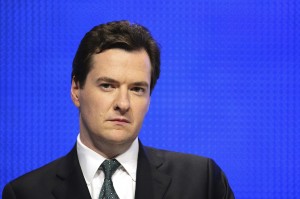Fears that Britain is heading for a triple-dip recession were heightened today after official Government figures showed the economy shrank by 0.3% in the last three months of 2012.
The Office for National Statistics (ONS) blamed the fall largely on a drop in mining and quarrying. The economy had grown by 0.9% in the previous quarter, boosted by the London 2012 Olympic Games.
But Business West managing director Phil Smith this afternoon said it was important to put the figures into perspective.
“The latest set of figures is disappointing and will inevitably lead to more talk of triple-dip recession and could further damagebusiness confidence. However the figures for the third quarter were inflated by ticket sales for the Olympics and this creates a downward distortion for the fourth quarter,” he said.
“The overall economic situation remains one of stagnation, which is clearly disappointing and needs to be remedied, but does not yet justify talk of recession. The figures show that the economy was flat in 2012, but if you exclude the effect of oil and gas, there has in fact been a small growth in GDP over the past year. Construction remains by far the weakest sector in the economy, with a year on year fall of 11%, which highlights the urgency of strengthening housebuilding and other infrastructure spending.
“Every effort must be made to minimise any harmful effect these figures may have on business confidence. We know from our own research that business confidence in the West is still relatively strong, and though firms are adjusting to the reality of lower growth prospects, they are determined to do what they can to drive growth. To maintain credibility, the Government must be prepared to do more to support exports and investment to improve the supply potential of the economy.”
The ONS figures shows tha tmanufacturing fell by 1.5% and the services sector was flat. However, output in the construction industry, which has suffered from a massive fall off in public sector work, rose by 0.3%.
The sharp manufacturing decline was the result of a 10.2% fall in mining and quarrying – the biggest decline since records began in 1997 and the result of disruption to North Sea oil and gas fields.
Chancellor George Osborne, pictured, described the figures as “a reminder that last year was particularly difficult, that we face problems at home with the debts built up over many years, and problems abroad with the eurozone, where we export many of our products, deep in recession”.
He said: “Now we can either run away from those problems or we can confront them. And I’m determined to confront them so we can go on creating jobs for the people of this country.”
But shadow chancellor Ed Balls said: “Today’s news confirms what business leaders, retailers and families have known for many months – that depressed confidence and a chronic shortage of demand mean our economy continues to flat line.
“This Government’s failing plan has now seen our economy stagnate for over two years and borrowing is now rising as a result.”
Institute of Directors South West chairman Richard Ayre said: “Yes, things remain challenging, but the more I hear from South West boardrooms, the more optimistic I get that the energy and talent is there for the region to push on.
“We need to hold back on the doom and gloom. The latest GDP fall was largely attributable to the unwinding of the Olympic effect and so the underlying story is that output is flat.
“The critical factor is not what the GDP figures did in Q4 but what the broad money supply figures will do in Q1.
“If the recent slight pick-up in money supply growth can be sustained, the UK economic outlook in 2013 will be better than people expect.”





























